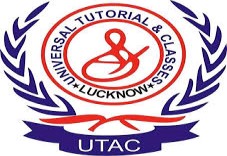With over a billion population and rapidly growing middle class which puts greater emphasis on education, it’s hardly a surprise that students in India face tremendous competition for getting admission into a good school for higher studies. India’s formal education which covers K-12 and higher education, up to post-graduation is subjected to high levels of regulation compared to informal education providers in India. The number of formal education institutions is limited (approximately 700 Universities – including state, central, private and deemed universities) considering that they cater to 30 million students every year in India and the number of students seeking higher education is expected to increase by 14 million in next three years.
The effect of an increase in demand for higher education can be seen in increased government spending on education. The Centre’s spending on education has increased at a 17% CAGR over the decade. India’s education budget saw a sharp increase of 4.8% in 2016-2017 to Rs. 723.94 Billion from Rs. 690.74 Billion of the previous year.
While the government is trying to match higher education demands by increasing the budget, an informal education sector, enjoying the less regulation, is rapidly growing by providing the necessary support for excellent education. This informal sector is mainly made up of pre-schools, coaching (including test prep), vocational and skills training, e-learning and academic publishing.
Having to face the excessive competition to get in a reputed higher education institution combined with the complexity of entrance exams and social stigma of getting higher marks in Indian education system forces most students to opt for external test preparation. In addition to the rising disposable incomes, increased spending on education and growing numbers of nuclear families, along with factors such as rising share of private institutions and enrolments, few quality educational institutions, high competition for limited seats in quality institutes have driven the growth of coaching industry. The most important trend of this educational shift is seen by the adoption of online platform in teaching and test preparation. Competitive exams like CAT, IIT-JEE etc. are being held online which has paved a way for online content, ebook, interactive study materials and online test preparation.
The reflection of which can be seen in the test preparation market. India’s test preparation market is estimated at Rs.378 Billion and growing at a CAGR of 14% since 2008-2009 and has grown at an unprecedented CAGR of 17.8%. During the period FY’2010-FY’2015, it is expected to outperform the overall test preparation market growth in next 5 years. This increase can be seen in test preparation institution from non-metro cities too. Apart from the most obvious reason – quality education- Preference towards e-learning modules and online mock exams are the reasons for rising market revenue of online test preparation segment which is expected to have around 19% share in the total market by FY’2020.
Students are seeing quite a few benefits of online test preparing.
- Anytime: It gives students the much-needed flexibility to study at their own pace at their own convenience at any time they want. It also allows students to revisit the content as many time as they need. The content can be downloaded and be available later for collaborative study with peers
- Anywhere: Much needed relief in student life – to not be present at a certain place at the certain time to study – is one of the most important benefits of online learning. With online learning, the coaching is available to remote areas where students don’t have access to training such as CAT preparations
- Anyone: Students from small town or students with limited means benefits more from online classes since online classes are relatively cheaper than brick-and-mortar classes and they remove the need of moving to bigger cities for certain education.
With its benefits over offline coaching and lucrative financial gains, online test preparation is bound to attract competition from large companies with unlimited resources. It would be vital for start-ups like Handakafunda to focus on effective marketing strategies including but not limited to providing free mock exams, discounted rate renewal of existing membership, discounted rates on combination / specific courses, infomercials in trade journal startupsinars in addition to digital marketing activities. One of the ways they can differentiate is by providing quality certification to the students. Nonetheless, even with its limitation like language, infrastructure requirement and lack of personal touch, it’s absolutely obvious that online test preparation is going to play a greater role in Indian Higher Education.
This article was written by Krunal Sagan, co-founder of Epecate and founder of Starstuff Management Consultancy Follow him on Twitter @krunalsagan
You Might Want To Read:
Iit Jam Mathematics Question Paper 2015 2, Common Subject Mock Test, Chemistry For Class 11 Video Lectures Iit Jeemainadvanceaipmt 2018 Mpeg By Career Point Kota, Upsc General Studies Question Paper 2 2010, Mechanical Engineering Solved Question Paper 18 2013, Displaying Empathy, Best 5 Gate Coaching Institutes In Hyderabad, Gate 2017 Question Papers Ey Ecology Evolution, Net French Mock Test Paper 162, Upsc Csmains Punjabi Literature Paper I Ii Question Paper 2010
Leave your vote
This post was created with our nice and easy submission form. Create your post!










Like what you read? Give author a thumbs up?
Bookmark this article to read later, drop a remark in comment section and share with your friends..